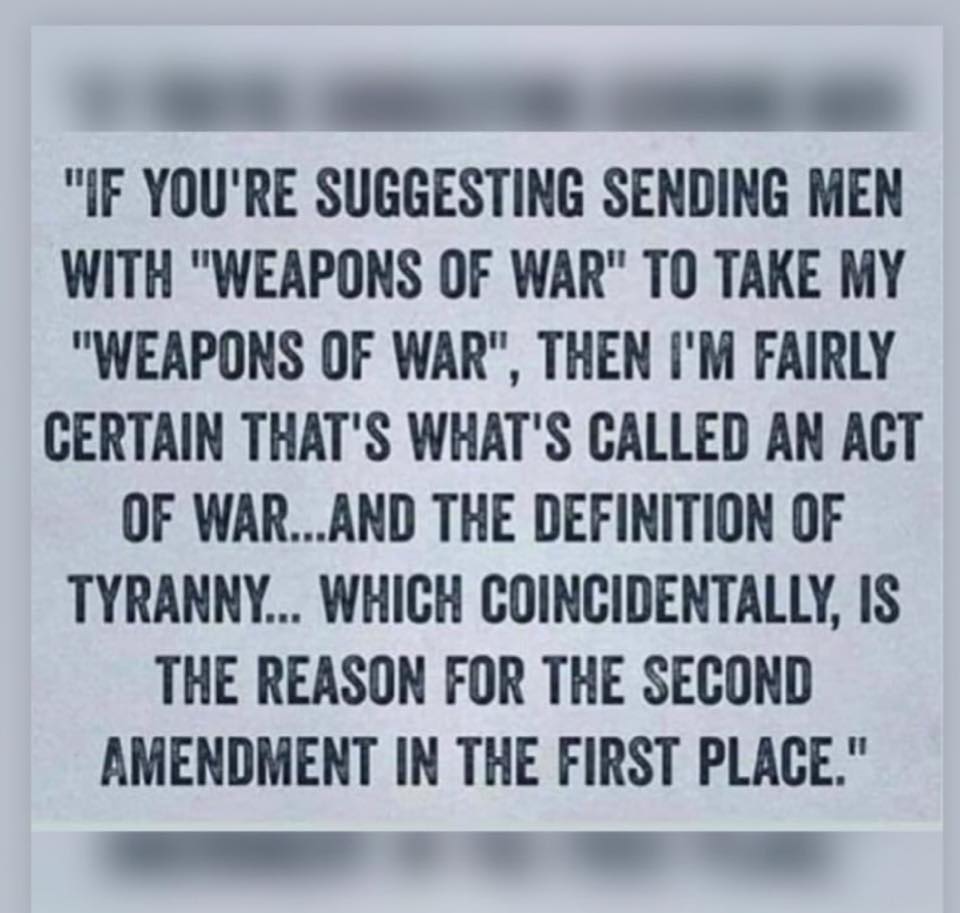zubenelgenubi
I'm a star
So which one do you honor ... the Constitution and Law or an oath?
The Posse Comitatus Act is a United States federal law (18 U.S.C. § 1385, original at 20 Stat. 152) signed on June 18, 1878, by President Rutherford B. Hayes. The purpose of the act – in concert with the Insurrection Act of 1807 – is to limit the powers of the federal government in using federal military personnel to enforce domestic policies within the United States.
The act specifically applies only to the United States Army and, as amended in 1956, the United States Air Force. Although the act does not explicitly mention the United States Navy and the United States Marine Corps, the Department of the Navy has prescribed regulations that are generally construed to give the act force with respect to those services as well.
The act does not prevent the Army National Guard or the Air National Guard under state authority from acting in a law enforcement capacity within its home state or in an adjacent state if invited by that state's governor. The United States Coast Guard, which operates under the Department of Homeland Security, is not covered by the Posse Comitatus Act either, primarily because although the Coast Guard is an armed service, it also has both a maritime law enforcement mission and a federal regulatory agency mission.
The oath is to support and defend the constitution, so if you abide by your oath, you honor the constitution. It is up to the courts to decide if a law is constitutional or not. As such, it can be difficult for a ground-pounding grunt to determine if they should follow an order or not. Which leads me back to my belief that we should have a well regulated militia of free, volunteer citizens who are called to duty only when a clear and present danger to the Republic presents itself. I understand that such a force could limit our military readiness, but the drawbacks of our current system have much deeper implications.



